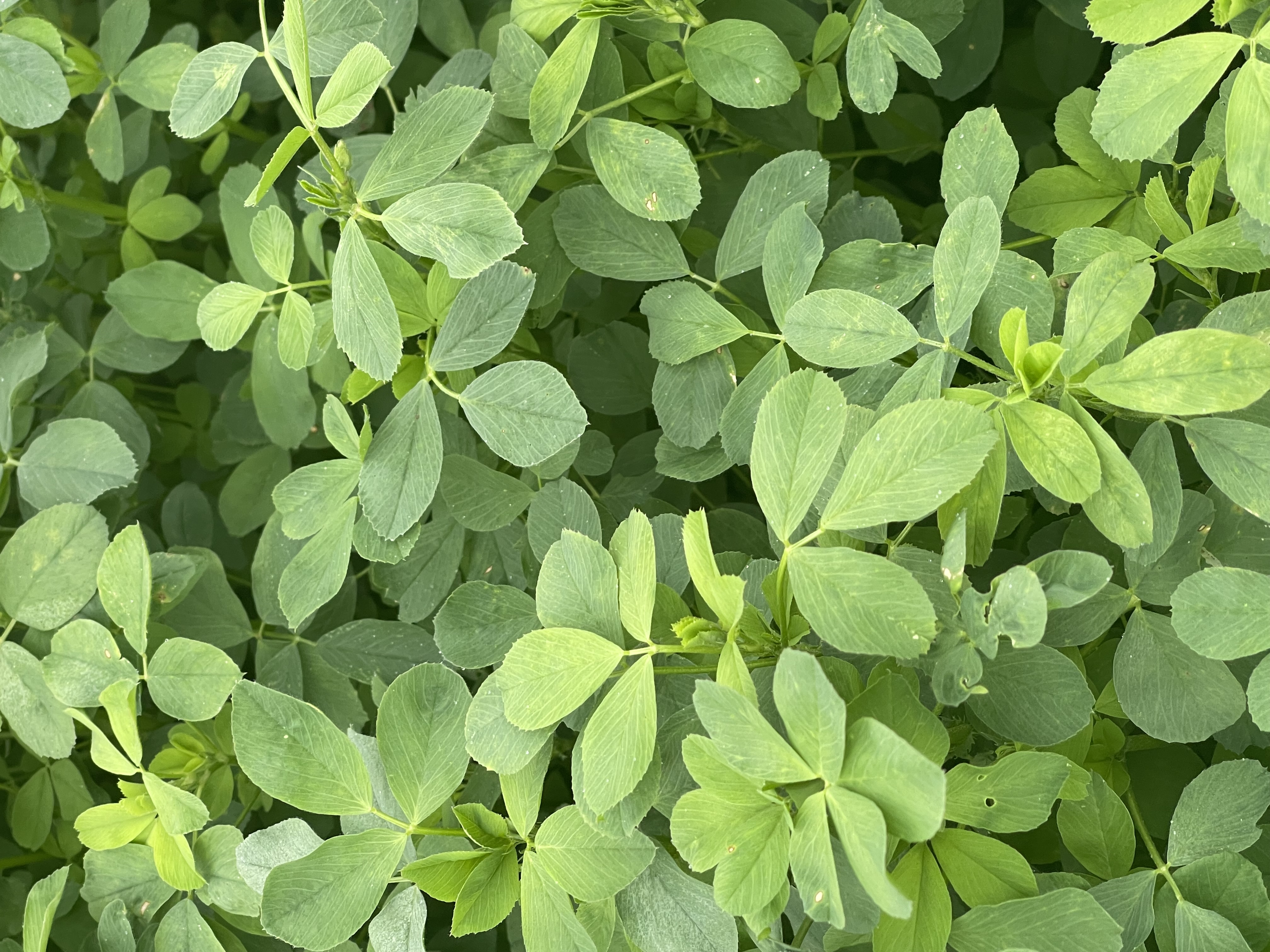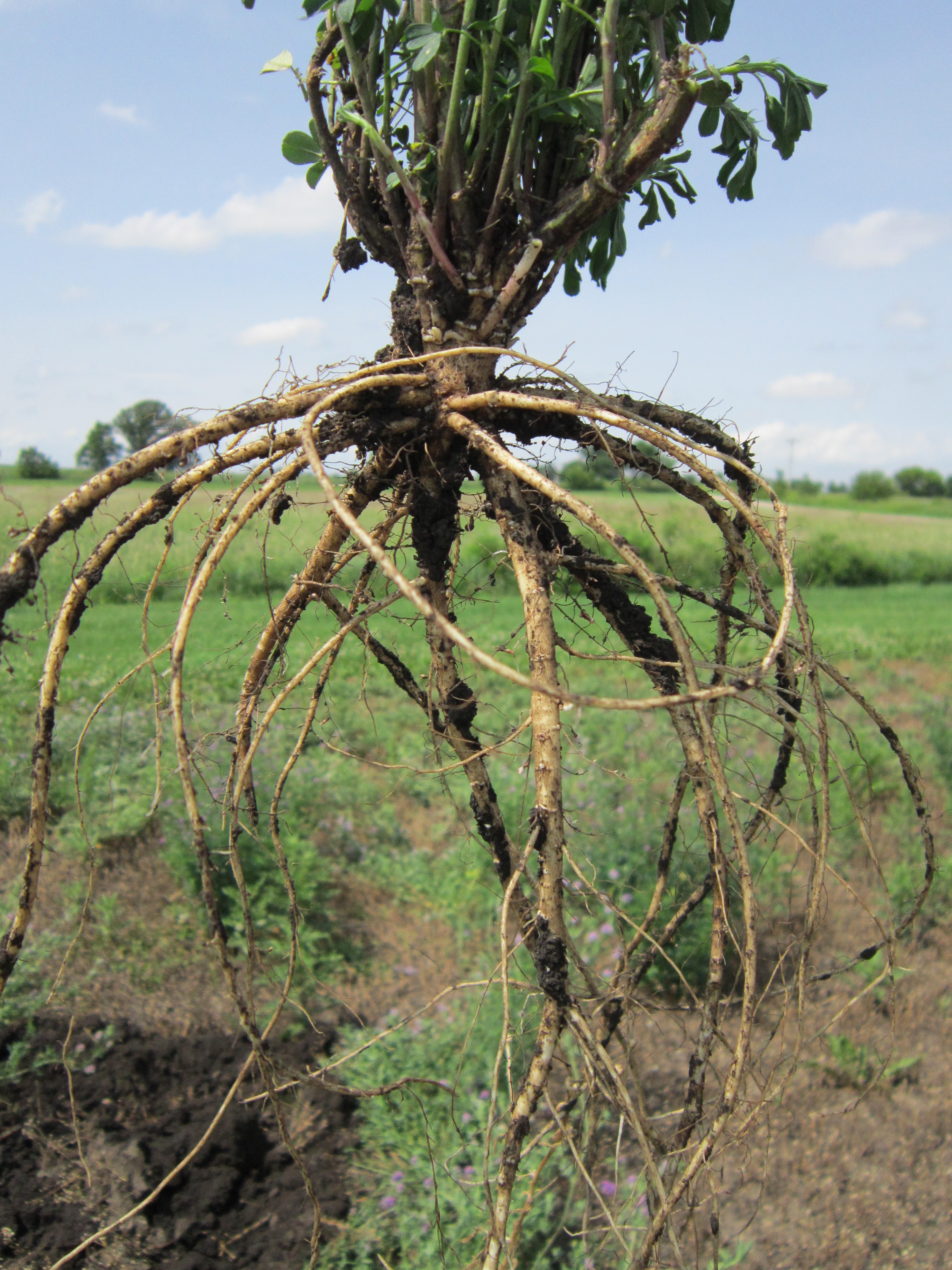Alfalfa Seeding Considerations
What should you consider when choosing Alfalfa?
Variety Selection
When choosing an alfalfa variety, consider forage requirements (livestock nutrition), field conditions (moisture, elevation, disease and weed history), and regional climate (fall dormancy, winter hardiness).
Speare Seeds Varieties
REBOUND AA Alfalfa
- Superior disease resistance (above- and below-ground)
- Fast regrowth and recovery after cutting
- Supports a 4-5 cut system
- Strong agronomic characteristics
- High yield with exceptional digestibility
- Winter-hardy


Escalade BR Alfalfa
- Branch root structure, ideal for heavy and wet soils
- High resistance to heaving
- High-yield potential
- Supports a 3-4 cut system
- Excellent disease resistance package
- Winter-hardy
TH2 Alfalfa
- Top performing alfalfa
- Strong multifoliate expression (leafy)
- Rapid regrowth
- Supports a 2-3 cut system
- Good disease resistance package
Supreme Brand: Merit Brand Alfalfa
- Exclusive to Speare Seeds
- 4 dependable, hand-picked alfalfa varieties
- Adaptable to variable soils (moisture/topography)
- A combination of branch root, taproot, high-yielding, and multifoliate varieties
- Excellent yield in a 2-3 cut system
Soil Testing & Fertility
Conduct a soil test before seeding to determine fertility needs. Boron (B) and Sulfur (S) are essential. Manure provides phosphorus (P), sulfur (S), and micronutrients but releases nutrients slowly and does not supply sufficient potassium (K).
Manure Testing: Test annually to determine nutrient content.
Boron: Apply 1-2 lbs/acre/year as needed to supplement manure.
Sulfur: Apply 20-25 lbs/acre/year to meet crop needs.
Soil pH: Maintain an optimal range of 6.8-7.2. If acidic, apply lime in advance—alfalfa fields cannot be limed once established.
Herbicide Considerations
- Check for residual herbicides from previous seasons that may affect new seedings.
- Review product labels for crop rotation restrictions.
- Plan early herbicide applications before the treatment window closes, ensuring compatibility with alfalfa and any companion species.
Please contact one of our forage experts for more information or to discuss your needs.


Comments